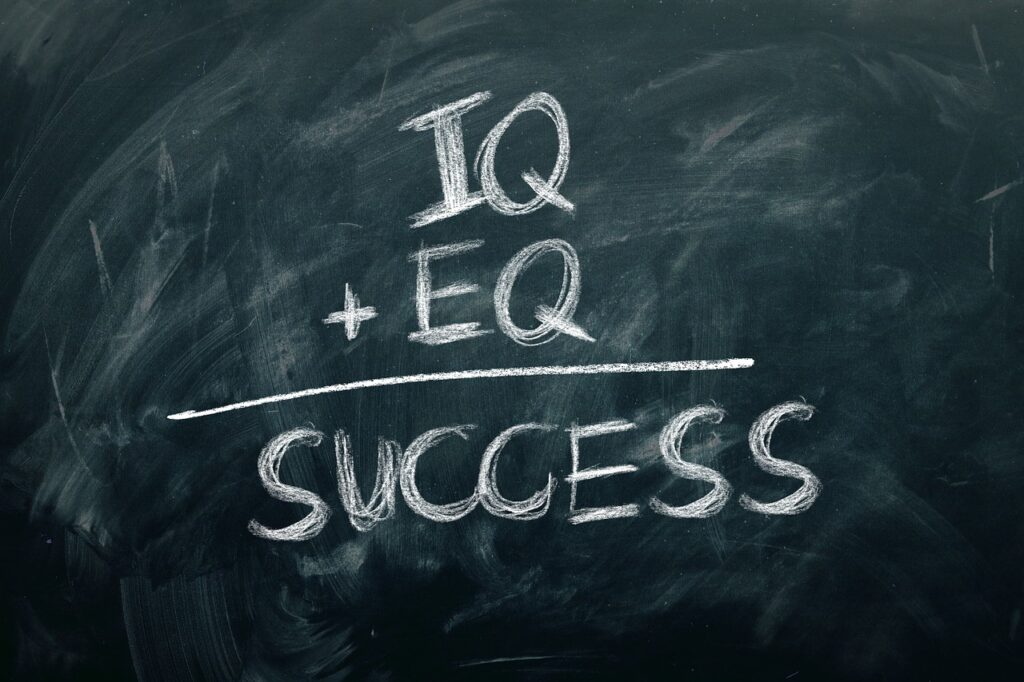Emotional Intelligence & Mental Well-Being: The Keys to a Healthier Life
Learn how emotional intelligence (EQ) impacts mental well-being, enhancing your life through self-awareness, empathy, and improved relationships.
What is Emotional Intelligence (EQ)?
Emotional intelligence (EQ) is the ability to understand, manage, and use your emotions positively. It helps you relieve stress, communicate effectively, empathize with others, overcome challenges, and defuse conflicts. EQ influences various aspects of your life, including relationships, professional success, and mental health.
The Five Components of Emotional Intelligence
Understanding EQ involves recognizing its five core components:
- 1. Self-Awareness
Self-awareness means knowing your emotions, strengths, weaknesses, values, and their impact on others. It’s foundational to personal growth and emotional resilience.
- 2. Self-Regulation
This involves managing your emotions and adapting to changing circumstances. It enables you to stay calm, composed, and in control.
- 3. Motivation
Emotionally intelligent people are driven by intrinsic motivation, focusing on personal fulfillment rather than external rewards.
- 4. Empathy
Empathy allows you to understand and share the feelings of others, crucial for building and maintaining relationships.
- 5. Social Skills
Strong social skills facilitate effective communication, conflict resolution, and the formation of positive, supportive relationships.
Benefits of Emotional Intelligence for Mental Well-Being
Enhanced emotional intelligence directly impacts your mental health by:
- Reducing stress and anxiety
- Improving resilience and coping mechanisms
- Promoting positive social interactions
- Enhancing overall life satisfaction and happiness
Strategies to Improve Your Emotional Intelligence
Boosting your EQ involves continuous self-improvement. Here are practical tips:
- Practice Mindfulness: Regular mindfulness meditation helps you stay present and better understand your emotional responses.
- Active Listening: Improve empathy by genuinely paying attention and responding thoughtfully.
- Seek Feedback: Ask trusted friends or colleagues for honest feedback to increase your self-awareness.
- Reflect on Your Emotions: Keep a journal to regularly assess your emotions, reactions, and coping strategies.
Further Resources on Emotional Intelligence
Enhance your understanding by exploring these authoritative resources:
Incorporating emotional intelligence into your daily life can significantly enhance your mental health, relationships, and overall well-being. Embrace these strategies to unlock your potential for emotional growth and resilience.
About
David Coggins is an independent writer informing readers about local business news. He has no affiliation with the business or organization featured in this story. Send inquiries, info, or corrections to info@davidcoggins.blog. You can also contact him through the sites contact page.
Follow David on Medium.com, or his personal blog for more stories on the economy, news, business, finance, artificial intelligence, and more.

